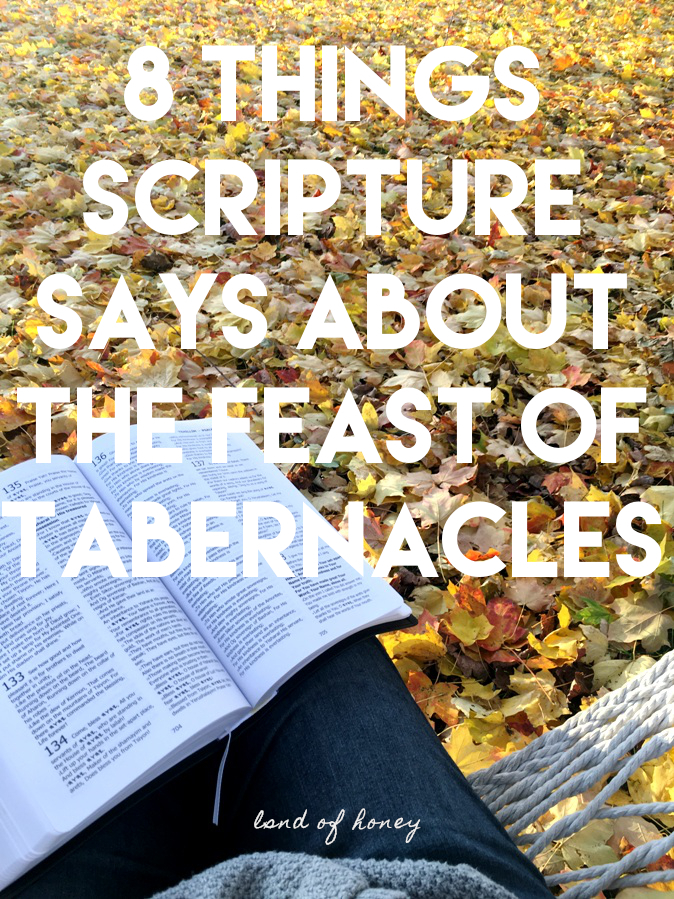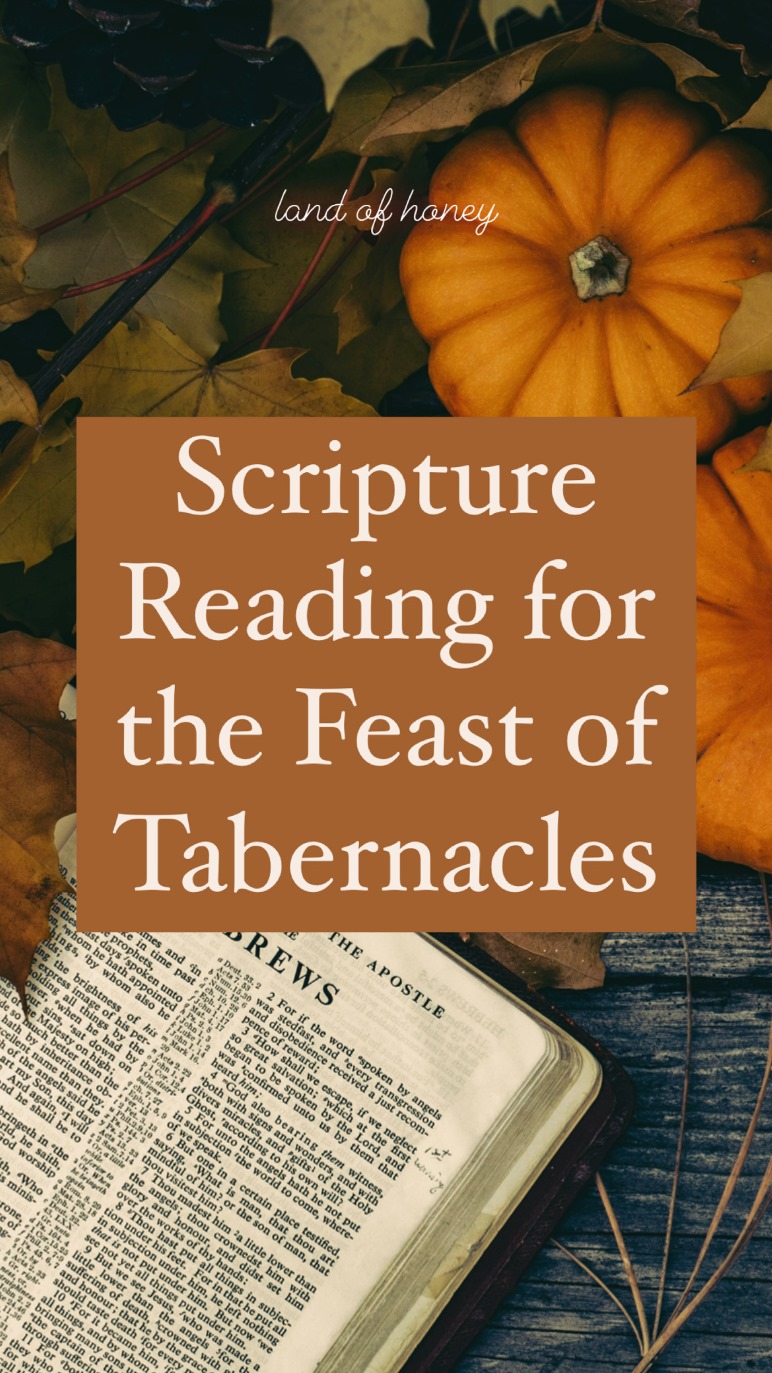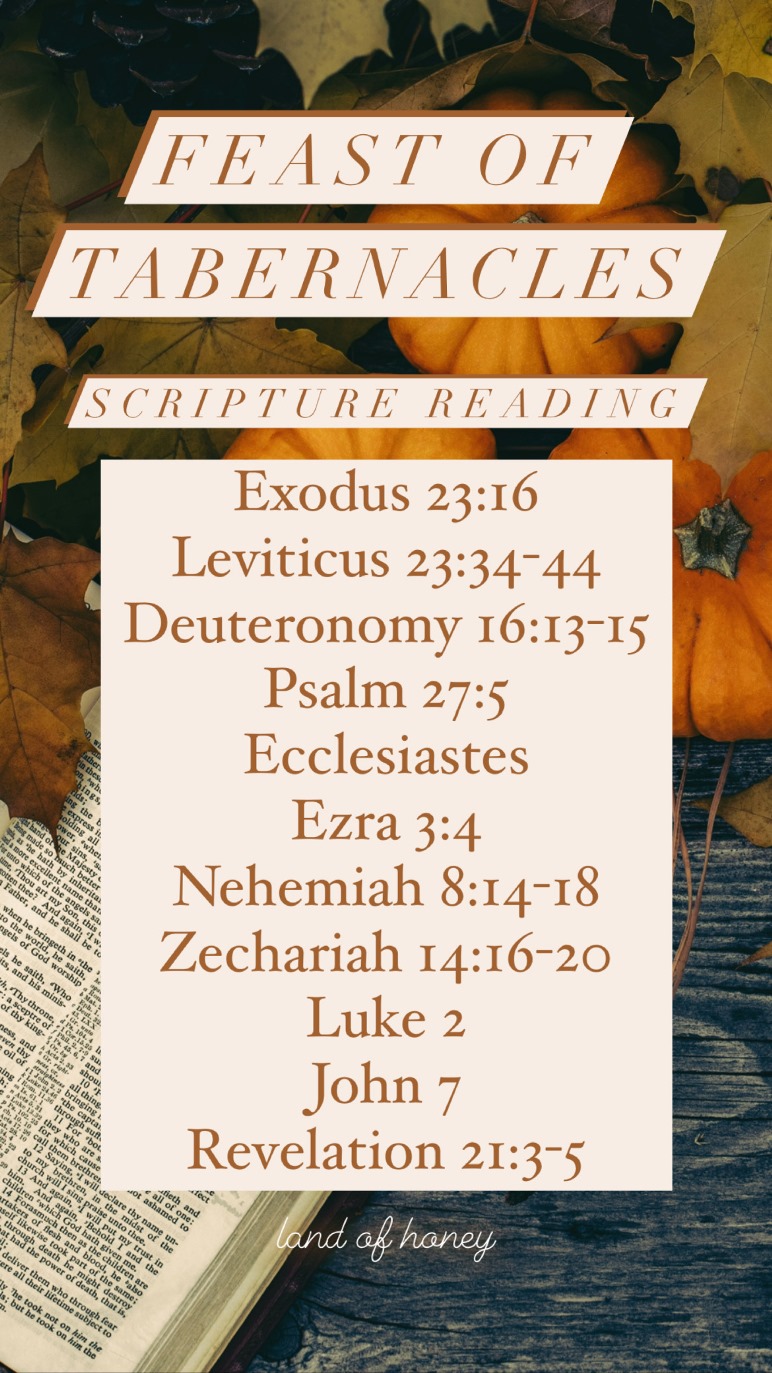The Feast of Tabernacles is the seventh and final Biblical holiday given to Believers. It also goes by the name Sukkot, which means something like thicket or temporary shelter. Less often it is called the Feast of Booths or the Festival of the Ingathering, and it is a very special time given to us by the Creator, filled with prophetic and historical significance for his people.
We are instructed to celebrate Sukkot for eight days. Scripture specifies that this is to be a time of rejoicing and that we are to make temporary dwelling places for ourselves, known as sukkahs or booths. It is a time for gathering with other believers, making offerings to YHWH, and there are two days (in addition to the weekly Sabbath) when we are commanded to do no work.
Significance of the Feast of Tabernacles:
Prophetically, the time of Sukkot reminds us that one day Yahusha the Messiah will dwell with believers. He will someday 'tabernacle' right here with us. It is amazing to think of the ramifications of living with the Messiah being actually physically present and ruling over us! I can't imagine the difference in the world once it is taken over by whom Scripture refers to as, "the only one worthy," which I think explains why Leviticus 23:40 says that Sukkot is a time of joy. There is so much joy ahead for believers! We especially see cause for rejoicing in the name Festival of Ingathering, when YHWH gathers in his people.
Historically the people of Israel lived in temporary dwellings for their forty-year sojourn in the wilderness while awaiting entry to the Promised Land. There is also evidence that the Messiah was born during this particular feast, which explains why he wasn't born in a house, but outside in a sukkah with animals. We can remember these significant events during this set apart time.
Sukkot serves as a reminder to all of us that this world, our homes, and even our bodies, are but temporary as YHWH has more for us beyond our cultures and lifetime. Since this happens at the time of the autumn harvest of crops, we are reminded both that YHWH provides for our physical needs and nourishment, and also that he will one day gather all believers to himself.
Why you should celebrate Tabernacles:
When we choose to celebrate the set apart time of the Feast of Tabernacles, we are literally doing what Scripture instructs (see Leviticus 23:41). Really just following YHWH's instructions for us should be reason enough, but we also see the Messiah honoring Sukkot and telling others to, and the New Testament tells us to keep the feasts!
By celebrating this special time we are being obedient to the word, we understand more about the Messiah's life, and we can grow in historic and prophetic understanding of Scripture. And if that's still not enough...this is a time of joy! Scripture actually tells us there is joy in this set apart time. Could you use more joy in your life? Then celebrate Tabernacles!
What to do for Tabernacles:
-Decide on your temporary dwelling. Leviticus 23:42 says that we are to dwell in temporary shelters during this time. Scripture does not go into detail on what this shelter is like. Believers do everything from week long camping trips in a traditional tent, RV, or rented cabin to pitching some sort of patio tent in their backyard or on their patio to have their meals in. If you need sukkah inspiration, check out this post.
-Take off the no-work days. While the festival and festivities of Sukkot last for eight days, only on the first and last are we told to rest and not work (in addition to the Sabbath). If you can take the whole time off from work that's great, but if you can't then prioritize having the first and eighth days of Sukkot off. Wondering what a no-work day is? Find out here.
-Give an offering. Though we no longer sacrifice animals, we can give to YHWH in other ways. A financial gift to your congregation or to a ministry teaching Biblical truth would be appropriate during this time. You could also offer up your time and talents volunteering for your congregation or another ministry or cause you believe in. Providing groceries or other assistance to a family in need would be another meaningful option. More ideas on giving here.
-Rejoice! Make this a time of joy for yourself and those in your life. Plan a get together or play games with kids or friends. Reminisce over happy and funny memories or family stories. Make a list of promises found in Scripture. Take a trip, make a special meal, and do what brings joy to you during this season.
More about the Feast of Tabernacles:












